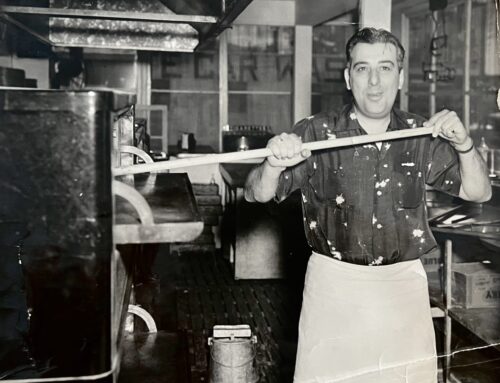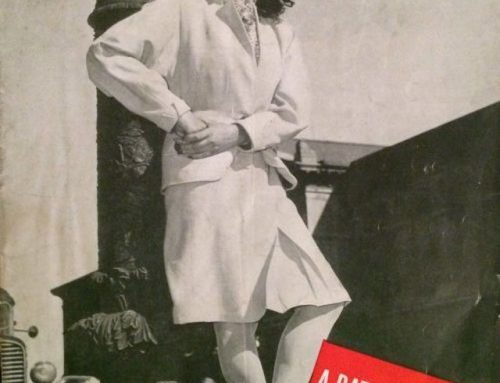*Updated 5/7/20
A developing list of coronavirus-related efforts in the region
Compiled by Nina Ignaczak, Sharon Kelly, Sam Love, Kiran Misra, and Afi Scruggs
The impact of coronavirus continues to grow across the region. Its numbers—both of cases and of deaths—are jolting, exponential. And their effects radiate outward, as life and work have already changed dramatically here in the Rust Belt. (See more of Belt’s coronavirus coverage here.)
Our communities have mobilized to help vulnerable populations manage the effects of the virus through mutual aid projects. Below, we’ve gathered a list of some of the many regional efforts underway, with a hat tip to our southern neighbors at Scalawag. This list is not comprehensive, of course. We’ll continue to add to it over the weeks to come—if you have items we missed, let us know at [email protected] or via social media—but we hope it’s a starting point for hope and action.
Please be respectful in your use of the contact information provided below.
Support independent, context-driven regional writing.
 ILLINOIS
ILLINOIS
Central Illinois
Many of the mutual aid resources in Central Illinois can be found in this Google Doc, which details resources for Champaign, Macon, Peoria County, Christian, and Sangamon Counties.
In addition to the efforts detailed above, Springfield, Coles County, and Champaign-Urbana have COVID-19 mutual aid Facebook groups, the Champaign PTA Council organized a food distribution volunteer sign-up, and volunteers have compiled a list of people prepared to help elderly central Illinois residents or those with weakened immune systems with errands or groceries. A mutual aid volunteer sign-up form has also been created for Illinois residents in Bloomington-Normal and McLean County, and those seeking help from volunteers should contact (309) 839-9496 to request aid.
Chicago
Chicago has an almost untrackable number of mutual aid projects, with new efforts organized nearly every day. Many are organized within Chicago’s seventy-seven neighborhoods. The Rogers Park Community Response Team includes volunteer hotline operators and delivery drivers to ensure Rogers Park residents in self-isolation receive assistance; Pilsen residents coordinated by Rush University medical student Sofia Armengol are building a network of neighbors to help make grocery or pharmacy store runs for vulnerable people and senior Chicagoans; A Pueblo Unido and Pilsen en Defensa are establishing another Pilsen aid network; and efforts to make grocery runs for vulnerable Chicagoans in Bucktown and Ukranian Village are underway. Residents of Garfield Park, Austin, North Lawndale, or the West Loop can request aid here, residents of the 48th Ward can request aid here or volunteer to give it here, and those living in Logan Square and Bucktown can join the neighborhoods’ mutual aid facebook group here or sign up to receive or give aid through the Logan Square Mutual Aid Network organized by Melanie Hoekstra here.
The Chicago and Illinois Covid-19 Resources Page and the Chicago Covid Resources spreadsheet detail additional resources for Chicagoans including a community-organized meal delivery service, a mutual aid network from the McKinley Park Support Network, and medicine and grocery delivery from the Lakeside Area Neighbors Association. Any Illinois artist of color looking for support can apply for a microgrant from For the People Artists Collective. Religious organizations are also setting up networks in their communities: Missio Dei Chicago, with congregations in Humboldt Park, Lincoln Square, Uptown, and Wrigleyville has mutual aid signup and request forms on its website, as does Uptown Church.
For those based on the city’s South Side, the South Side Weekly has compiled an excellent and comprehensive guide to everything from relief funds for artists to support for undocumented Chicagoans and incarcerated people, food distribution centers, legal aid, and more. Included in this list are mutual aid efforts like the crisis food pantry and grocery delivery service (which can be requested here) for LGBQTIA South Siders organized by Brave Space Alliance; elder support from I Grow Chicago; a community school for children in Englewood organized by Mothers Against Senseless Killings; wellness checks and a sanitizer delivery service for seniors organized by My Block, My Hood, My City; and wellness checks and errand runs by the Little Village Environmental Justice Organization. Block Club Chicago has a similar guide for the city as a whole, with links for finding food and shelter, ways to support local businesses, and a roundup of Block Club’s thorough and extensive daily coronavirus coverage.
The Chicago Hardship and Help Page was created by Chicago organizers Kelly Hayes and Delia Galindo to offer a simple way for people in the Chicago area to ask others for assistance during this crisis. Those needing assistance can fill out a request form which is compiled in a spreadsheet and those seeking to help can pick a hardship to address and donate. Hayes is also organizing volunteers to be connected with organizations doing mutual aid work around COVID-19 in Chicago.
Many of the restaurants in the city are offering free meals to those impacted by COVID-19, including Big Star in Wicker Park, Vincent, The Fifty/50, HaiSous, and DSTRKT Bar & Grill. The restaurant Fat Rice is offering a pay-what-you can meal kit. The Chicago Hospitality Employee Relief Guide and the Chicago Service Relief websites contain links to GoFundMe fundraisers for hundreds of organizations in the city whose workers have been affected by the outbreak (Ravenswood has a similar compilation of local fundraisers on its neighborhood website).
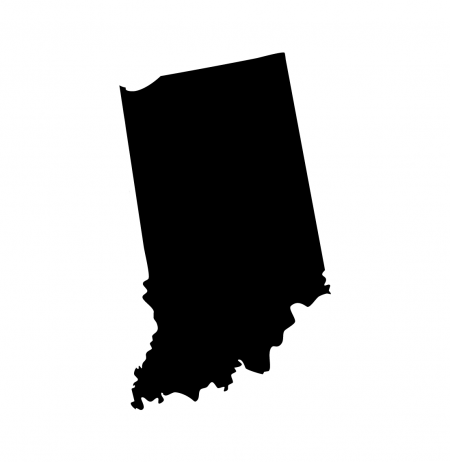 INDIANA
INDIANA
Bloomington/Monroe County
No Space For Hate has produced a twelve-page list of county-wide resources with community-organized initiatives, resources for food insecurity, non-food essentials, and community organization assistance needs. They are maintaining a public Google spreadsheet for residents requests and offers for help. They are also organizing a network of neighborhood pods and are looking for Neighborhood Point Persons to moderate group text chats and phone trees. Also: TP for Btown is asking local businesses to donate extra toilet paper to families in need. Contact Katie Norris at [email protected]. Storage and pickup: Bedrak Cafe 409 S. Walnut St.
Monroe County residents can organize resource sharing and post needs at Monroe County Area Mutual Aid for Covid-19. AREA 10’s Rural Transit is scheduling appointments to deliver prescriptions and groceries to homebound individuals In Lawrence, Monroe, Owen, and Putnam Counties. Service must be scheduled through the county’s Rural Transit office. In Monroe and Lawrence Counties call 812-876-1079, Owen County: 812-829-6066, Putnam County: 765-848-1508.
Limestone Post Magazine, which serves Bloomington and Monroe County, also published a list of Monroe area COVID-19 resources, including mutual aid and social service links.
Indianapolis/Central/North Central
The Central Indiana COVID-19 Community Economic Relief Fund has emergency grants for individuals and small arts nonprofits. The fund is maintaining an extensive list of artist-related resources and information at indykeepscreating.org.
In Kokomo, takeaway meals for all Howard County students and their families will be offered through the Stay At Home order. Pickups will occur on Wednesdays from 9am until noon at three locations: Bon Air Middle School (2796 Apperson Way North), Central Middle School (303 E. Superior St), and Maple Crest Middle School (2727 S. Washington St).
The Edna Martin Christian Center is hosting a Food and Supply Pantry, Monday through Friday, 11:00 a.m.-4:00 p.m., at 2605 E 25st Street. ID required. Call 317-637-3776 or visit www.ednamartincc.org.
In, Putnam County, residents are organizing resource sharing and posting their needs at Putnam County Mutual Aid: COVID-19 Response. A four-page county resource directory is available, along with a list of food pantries serving Putman County.
Greater Lafayette Area
Local residents can organize resource sharing and post needs at Greater Lafayette COVID-19 Mutual Aid Response. Plus: the United Way of Greater Lafayette has an online resource guide for mental health, childcare, and food issues, with information pertaining to medical and housing/utilities under development. They are also organizing volunteer efforts.
Northeast Indiana/Fort Wayne
The Associated Churches of Fort Wayne and Allen County has updated its online, interactive map of twenty-five local food pantries. The Community Harvest food bank of northeast Indiana has changed its Farm Wagon delivery program to once a week; the new schedule can be found here.
Fort Wayne Band Aid is raising money for servers and bartenders from local music venues and hosting a series of live-streamed performances. Fund The Fort is aggregating a long list of fundraisers for local restaurants and service industry workers.
Northwest Indiana/Michiana
The Gary Pet Food Pantry is distributing dry cat and dog food on a pre-registration basis. The pantry cannot accommodate walk-up residents. Individuals must register no later than Friday, March 27 at 9 p.m. All Lake County residents are encouraged to apply. The Revolution Church has resources for families and children at facebook.com/justshorties. Panera Bread community bread giveaways will occur on Wednesdays, 10 a.m.-noon, at 301 S. Lake St.
In Michigan City, OURMC—Organized and United Residents of Michigan City—have launched a Neighbors Response Team and are building a community resource list. On April 7, they will host a Zoom discussion, Starting Your Victory Garden! from 6:30-8 p.m. with tips from local Master Gardeners. A GoFundMe campaign has been organized for Michigan City Red Lobster employees.
The St. Joseph County Mutual Aid Initiative has created a contact form for residents’ requests and offers of help. Service workers can add their name to the Michiana Service Workers Venmo List. Local residents can organize resource sharing and post needs at St. Joseph County Mutual Aid Initiative.
The Food Bank of Northwest Indiana has updated its Mobile Market food distribution schedule for Highland, Merrillville, and Valparaiso through April 9. All distributions will be drive-thru. Individuals are asked to arrive no earlier than 3:30 p.m. and have valid proof of Indiana residency.
The Northwest Indiana Food Council has compiled a resource page for Lake, Porter, LaPorte, Starke, Newton, Jasper, and Pulaski counties including resources for hunger relief, school meals, volunteer needs, local farms, and local restaurants.
South/South Central
South Central Indiana COVID-19 Food Resources maps dozens of food pantries, school meal pickups, free meals, and little free pantries, and restaurant special pickups and deliveries. Information can be added here. In Princeton and Fort Branch, local residents can organize resource sharing and post needs at Minor Miracles of Mutual Aid.
In Brown County, the Society of St. Vincent de Paul of Brown County continues its pantry service at 2901 Long Lake Road, Nashville, Monday-Saturday, 10 a.m.-noon. Call 812-988-8821 or visit stvincentdepaulbrowncounty.com. Mutual Aid Brown County (IN) COVID-19 is taking donations for the Brown County Rapid Response Fund for COVID-19 Relief and maintaining the Brown County IN Service Industry Venmo List for service workers affected by the Stay At Home order. Denizens of Brown County’s pubs and bars can support their favorite servers and bartenders at Tip Your Server! Brown County.
In Morgan County, the Barbara B. Jordan YMCA (2039 E. Morgan St, Martinsville) is offering Drive-Thru Dinner, one free meal for every youth in the vehicle, from 4-5pm, Monday through Friday. For more information call (765) 342-6688 or visit www.bbjymca.org. Residents of Morgan County can organize resource sharing and post needs at Morgan County, Indiana – Mutual Aid.
Vigo County residents and residents of adjacent areas can organize resource sharing and post needs at Vigo County Mutual Aid: COVID-19 Response.
In Johnson County, the InterChurch Food Pantry of Johnson County is offering drive-up service Monday through Friday, noon until 3:00pm, at 211 Commerce Drive, in Franklin. Saturday service has been discontinued, residents may pick up food more than once per week, and in this time of emergency the pantry has relaxed rules restricting service to Johnson County residents.
In College Corner, local residents can organize resource sharing and post needs at College Corner OH/IN COVID-19 Mutual Aid.
South Central Indiana Coronavirus Help has compiled a five-page list of food, housing, financial assistance, infants, WIC, child care, and emotional support resources available in south central Indiana. The organization has created a spreadsheet for immediate requests for help and a form for Columbus residents who can offer specific items or services. A private Facebook group has been set up for residents of the Donner Park neighborhood in Columbus.
Statewide
Hoosier Action has developed a survey to gauge needs and concerns and is developing a state-wide resource list.
RTV6 Indianapolis is maintaining a state-wide interactive food assistance map. The Indiana Family and Social Services Administration maintains a food assistance availability map.
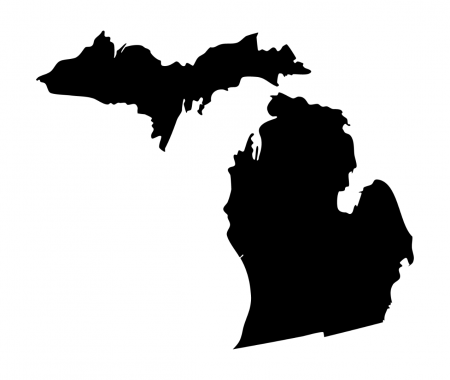 MICHIGAN
MICHIGAN
Ann Arbor/Washtenaw County
The Washtenaw County Mutual Aid + Resources launched March 13, 2020, and now has more than four thousand members. The group is designed to facilitate exchange based on need and ability and is “Not a 1 for 1 money exchange.”
Detroit
In Detroit, where the virus is growing disproportionately fast compared with most of the country, a Facebook Group called Metro Detroit Covid19 Support launched on March 13 and quickly grew to nearly seven thousand members. The group offers a place to share and request local resources and information. A second Facebook group run by local independent news organization Detour Detroit performs a similar function with daily news briefings. A text service launched by digital media startup Outlier Media asks residents to identify their information needs and seeks to fill them.
Also: local co-working space TechTown Detroit launched a crowdfunded Small Business Stabilization Fund. A website called Detroit Help Hub run by a local marketing firm launched March 25 to support small businesses, The group FoodNotClass offers “mutual aid via food shares and free stores weekly at the major transit center in the city of Detroit.” The group Detroit Food Not Bombs “recovers and shares free vegan or vegetarian food with the public without restriction in over 1,000 cities around the world,” including Detroit. A group of immigrant justice advocates launched a GoFundMe to support undocumented families.
Several Detroit neighborhood-level mutual aid networks have popped up using Google Sheets and Facebook Groups, including Combating COVID-19 in Southwest Detroit; Community Care/ Member Needs Assessment Form Combating COVID-19 in Highland Park, MI (& Surrounding Communities); and Parker Village HP COVID-19 Info and Response SHARING; and Detroit-Based COVID-19 Mutual Aid.
In Metro Detroit, a group called Michigan Mutual Aid Coalition – MIMAC offers delivery service to grocery delivery service to those in South Oakland, South Macomb, and Wayne counties who are unable to get groceries for themselves. In Pontiac, the group COVID Response is a “network of leaders from various local community organizations, churches, and other agencies in central Oakland County who are working to establish connections between those in need and those with resources to meet those needs.” The group has established an information hub, needs database, and sign-up portal for volunteers. The Madison Heights Emergency Pantry Facebook group launched on March 13 to coordinate food relief for the community.
Flint
The Facebook group Flint area mutual aid and assistance launched March 15 as a “A place to post offers or requests for aid due to quarantine or work lost from social distancing” and has 341 members. A “Lansing MI Mutual Aid Offerings for COVID-19” Google form allows people to offer and request childcare, funding or other help.
Branches of the YMCA of Greater Flint are offering free meals to the community seven days a week.
Grand Rapids
The Grand Rapids Area Mutual Aid Network launched to “help our neighbors buy cleaning supplies, buy food and medicine, and make up for lost wages.” (PayPal here.)
Kalamazoo Area
The Kalamazoo Area Mutual Aid Network launched March 13 and has grown to nearly a hundred members. The group is focused on “sharing resources, needs, and info about mutual aid work that people are doing at this time.”
Northern Michigan
A Facebook group called Northwest Michigan Mutual Aid launched August 4, 2019 and has forty-nine members.
Port Huron
A mutual aid Facebook group links to resources and resource-sharing opportunities.
Ypsilanti
The Mutual Aid Network of Ypsilanti (MANY) was founded in May 2019 to “help facilitate as much cooperation and aid as possible” with a focus on impacted and marginalized community members.The group was steadily growing as the crisis hit and aims to expand the model of Ann Arbor-based Food Gatherers‘ to non-food items.
Statewide
Funds: Support for SE Michigan undocumented families; migrant solidarity; Black TGNC folks.
The Michigan Music Alliance has launched a Michigan Artist Relief Fund for musicians in need. A resource targeting Michigan Muslim communities, the Michigan Muslim COVID Volunteer Form for Detroit, Flint, Grand Blanc, Hamtramck, and Lansing/East Lansing, asks volunteers to deliver grocveries to those without transportation. Two Facebook groups, Ann Arbor Menu and Kalamazoo Menu have also launched to support the restaurant industry by connecting residents with takeout and delivery options. A Grand Rapids-based physician created this thirteen-minute video on how to safely bring groceries and takeout into your home.
Bridge Magazine is maintaining a statewide case and mortality dashboard. (Local dashboards are available for Oakland County and Detroit.)
 NEW YORK
NEW YORK
Western New York/Buffalo
The Buffalo News compiled a story on projects including Buffalo Mutual Aid, which created Google Doc of resources and is soliciting donations for “food, over the counter medicine and cleaning supplies,” as well as a “Solidarity Relief Fund” for regional workers. PUSH (People United for Sustainable Housing) Buffalo has created a Coronavirus Response Center with resource links. A list of local restaurants to support with takeout/carryout is at givebuffalo.com.
 OHIO
OHIO
Northeast Ohio/Cleveland
Cleveland Ibn Sina Free Clinic offers telemedicine services to uninsured and underinsured individuals.
Cleveland Tip Jar was created by Saucy Brew Works, a local restaurant, to aid Cleveland servers. Contributors are asked to tip every time they have a drink or eat a take-out meal at home. Recipients are randomly generated, or contributors can donate to servers at specific restaurants. The money is sent to the recipient’s Venmo, Cash App or Paypal account. Service workers can add their name at this Google form.
GoodFella’s BBQ, in Cleveland Heights, is giving local children a free snack pack, Tuesdays through Fridays from 12 to 3 p.m. (The effort continues in spite of vandalism.) The restaurant is at 2847 Noble Road. Donations fund the effort. Contribute via CashApp at $goodfellasbbq, or take money straight to the restaurant.
The grassroots group Food Not Bombs Lake County and Eastside CLE harvests vegetables and bread from local restaurants, and distributes it in Willoughby, Ohio, as well as on the East side of Cleveland. The Willoughby distribution is on the first and third Tuesday in Todd Field, 38269 Glenn Ave. from 3 to 4 p.m. The Cleveland distribution is held at 6321 St. Clair Ave. from 5 to 6 p.m. All are welcome, no questions asked. Recipients stand in line, with demarcations eight feet apart. Food is handed out to one person at a time. All produce is bagged and passed out by gloved volunteers. Bring a shopping tote or a cart. For more information, call 440-340-3663.
West Park United Church of Christ, at 3909 Rocky River Dr., Cleveland, Ohio, is still operating its Saturday food pantry. The hours are 9 a.m. to noon, and distributions are limited to neighborhood residents. The church also conducts emergency food deliveries for vulnerable residents, such as the elderly, the disabled and those with compromised immune systems. For more information, call the church at 216-671-7228, or contact them online. The church is accepting financial contributions as well. Food donations are discouraged because volunteers do not have time to properly sanitize them.
Those identifying as female can request free diapers, menstrual pads, etc. from New Voices for Reproductive Justice by phone (216-307-3185) or online (newvoicesrj.org).
Cincinnati/Tri-State Area
The Free Store Food Bank provides food and meals to twenty counties in Ohio, Indiana and Kentucky. This webpage contains updates about food distributions and other services available during Ohio’s “Stay in Place” order. The organization also maintains a Google spreadsheet of contact information for local social service organizations.
Columbus
The following organizations are providing ready-to-eat meals, mostly to children and youth, to help bridge the gap of no in-school meals (take out only):
Columbus City Schools (2 South Side locations)
- Providing free breakfast and lunch to all children eighteen and under. Not registration required.
- Two locations: South Middle/High School, 1160 Ann Street; Buckeye Middle School, 2950 S. Parsons Avenue
- Breakfast hours: Mon – Fri from 8 – 9 a.m.
- Lunch hours: Mon – Fri from 11 a.m. – 1 p.m.
Smoked on High BBQ (755 South High St)
- Starting March 18, kids can get an order of BBQ chicken for free the next three weeks.
- Hours: Wed – Sun 11 a.m. – 8 p.m. (while supplies last)
Roosters (897 City Park Ave)
- March 16 through April 5, kids under twelve years old can get a free meal.
- Hours: Wed – Sun 11 a.m. – 8 p.m. (while supplies last)
Legacy Smokehouse – Hilliard (3987 Main St)
- Kids can get a hot dog or pulled pork slider for free.
- Hours: Tues – Fri from 11 a.m. – 2 p.m.
Those identifying as female can request free diapers, menstrual pads, etc. from New Voices for Reproductive Justice by phone (216-307-3185) or online (newvoicesrj.org).
 PENNSYLVANIA
PENNSYLVANIA
Pittsburgh
Pittsburgh’s City Paper has collected a list of mutual aid funds and volunteer groups in Pittsburgh, with links to organizations, which you can find here. The list includes this spreadsheet, for organizing volunteer efforts, which says that its goal is “to help folks in the Greater Pittsburgh area connect with one another to share resources and get support as we navigate the COVID-19 crisis and lingering economic impacts.” It also lists a “virtual tip jar” for service industry workers and a GoFundMe for restaurant workers (which notes, as of March 23, that “We are temporarily pausing our application form as we work through the hundreds of applications that have already been submitted.”)
Those identifying as female can request free diapers, menstrual pads, etc. from New Voices for Reproductive Justice by phone (412-450-0290) or online (newvoicesrj.org).
Philadelphia
Neighbors Helping Neighbors describes itself as “a Black, Brown, & Native-led group of community members & organizers involved with radical social justice organizations around the city. We are neighbors concerned about our communities and helping to make sure those most vulnerable and affected by COVID-19 get the help they need.” The group says it’s seeking to match those who can help with those in need. “We offer support getting folks groceries, medicine, and supplies. We are volunteer run, we are not funded, and our aid comes directly from the community.” See their Google form here. Contact: [email protected].
The Philadelphia Citizen has also collected a list of Philadelphia volunteer and mutual aid organizing efforts here. It includes a virtual tip jar where you can send some bucks to individual service industry workers and a restaurant server relief fund.
Kensington-based Prevention Point, the largest syringe exchange in the U.S., continues to offer many of its services as well as provide food and other essentials. The organization is accepting donations of funds, as well as items via its Amazon wishlist.
Philly We Rise and the Movement Alliance Project are hosting a list of dozens of Philly-based and national mutual aid efforts and volunteer organizations. It includes, for example, the Philly Mask Crusaders PPE Mutual Aid project, which seeks to coordinate donations of personal protective equipment like masks, gloves, gowns and sanitizer for those on the front lines of the pandemic response.
Those identifying as female can request free diapers, menstrual pads, etc. from New Voices for Reproductive Justice by phone (267-365-7120) or online (newvoicesrj.org).
Statewide
For communities across Pennsylvania that don’t (yet) have mutual aid networks organized, It’s Going Down lists numerous “Organizing and DIY Resources” that can help you to launch local efforts. They include a template for an invitation to form a mutual aid group, a guidebook on how to replicate mutual aid efforts elsewhere, and a resource kit for organizers.
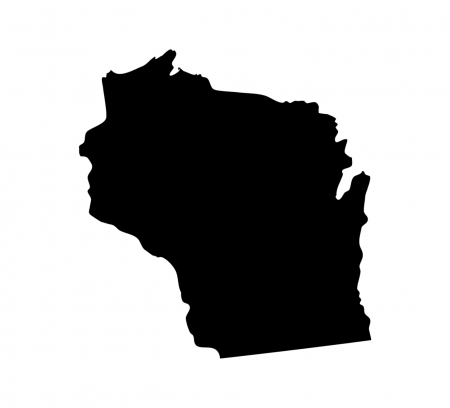 WISCONSIN
WISCONSIN
The Wisconsin Network for Peace, Justice, and Sustainability, a coalition of activist groups and progressive citizens in Wisconsin, has compiled a frequently-updated list of resources for those affected by COVID-19, which contains links to local mutual aid efforts in Madison, Milwaukee, Appleton, Fennimore, Fond du Lac, Juneau County, Kickapoo, Mineral Point, Rock County, and Vernon County. The list also includes a list of state resources for those impacted by the virus and information for those who want to participate in a call to postpone Wisconsin’s approaching primary.
This is a developing list. Have something to add? Send a note to [email protected]. ■
Belt Magazine is a 501(c)(3) nonprofit organization. To support more independent writing and journalism made by and for the Rust Belt and greater Midwest, make a donation to Belt Magazine, or become a member starting at just $5 a month.



